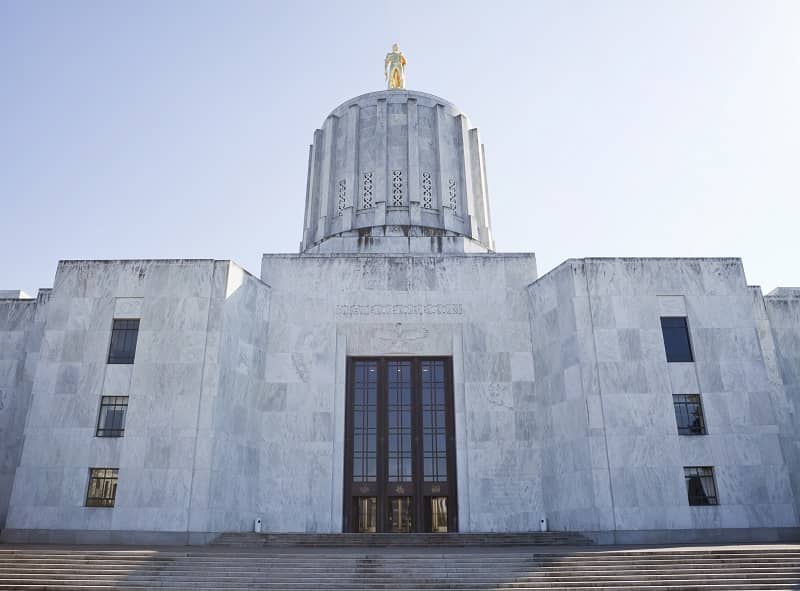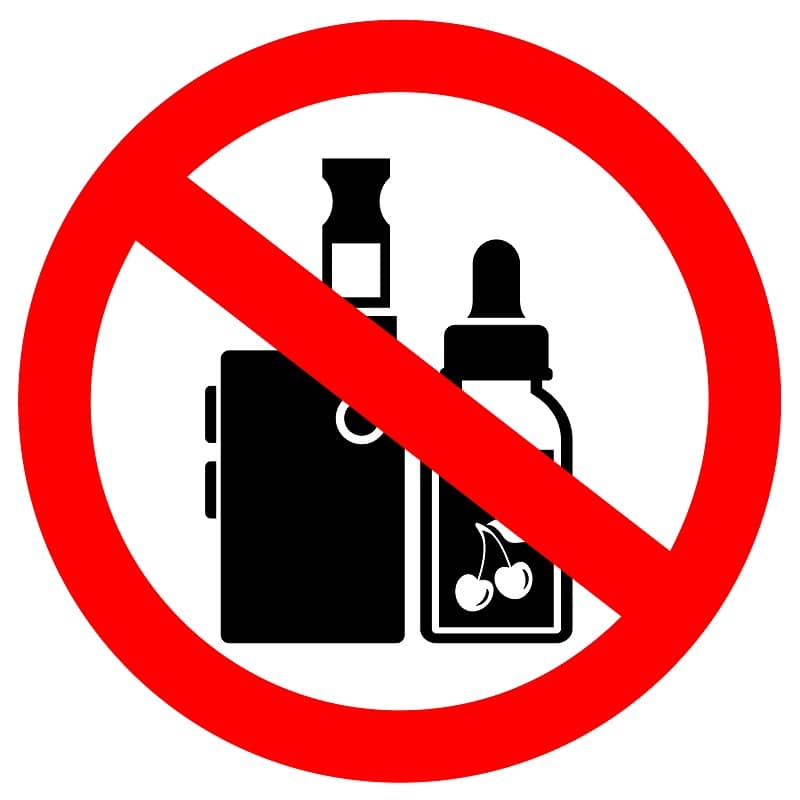Comments from Cascade Policy Institute
Eric Fruits, Ph.D.[1]
November 16, 2022
Cascade Policy Institute urges the City of Portland Bureau of Planning and Sustainability and City Council to reject the proposed amendments to the city’s Renewable Fuels Standard.
BPS proposes amendments to Portland City Code Chapter 16.60, overhauling the city’s Renewable Fuels Standard. If enacted, the amendments will effectively ban the sale of petroleum diesel within the city limits. Specifically, the RFS changes would mandate replacing 99% of petroleum diesel sold in the city with renewable fuels by 2030. BPS claims the changes are “straightforward and efficient.” These claims are false, as described below.
Insufficient supply of renewable diesel will doom the RFS amendments
BPS makes an outrageous and unsupported claim that—because of the four-year phase-in period—the supply of renewable fuels will rise to meet the increased demand imposed by the new RFS mandates. That supply does not exist today and is unlikely to arrive by 2030.
It is well known that current renewable fuel supply is inadequate to satisfy demand.
- BPS admits: “Today, renewable diesel is a relatively limited product that only large purchasers like City of Portland and TriMet can access through negotiated contracts.”
- BPS reports, “The City has been able to obtain renewable diesel 75-99% of the time.” While BPS is cagey about what this means, it suggests that even under its negotiated contracts, the city is unable to meet its own renewable fuel purchase goals.
- Today, the city is considering another supply agreement because the city cannot obtain a “consistent supply” of B99 diesel. If the city cannot meet its own goals, then it will be impossible for the city as a whole to meet the proposed RFS mandate.
Macey Wessels, part-owner of Boshart Trucking, testified to the legislature:
There continues to be a disconnect between the available supply and Oregon’s demand. Today, not everyone can purchase Renewable Diesel due to the supply and storage constraints. Based on existing data, there is almost no way to know whether those realities will change. For purposes of a reference point, in 2019, Oregonians used over 719 million gallons of diesel. By comparison, less than 17 million gallons of Renewable Diesel and 60 million gallons of biodiesel were brought into the state. Meaning, Renewable Diesel amounted to less than 3% of the fuel used in diesel engines. We simply do not have the Renewable Diesel supply and infrastructure for a fuel transition of this size and magnitude.
In the 2021 session, the Oregon legislature scrapped a bill that would phase out petroleum diesel across Oregon. One of the main arguments against the bill concerned the shortage of renewable fuels. Regarding that bill, Amanda Astor, manager for the Association of Oregon Loggers, commented to the Oregon Capital Insider: “By all accounts, production and storage capacity is not even close to making exclusive renewable diesel a viable option for motor vehicles.” In Truckers News, Jana Jarvis, president of the Oregon Trucking Association noted, “The problem for us is there simply isn’t a supply of renewable diesel” and “It’s questionable why we would mandate a fuel that’s in short supply when our carriers can’t access it.”
Gas stations in Oregon have to compete with stations in California and Washington to buy renewable fuels. Oregon stations, however, often cannot compete for supply because of the massive subsidies provided by the California government. Jarvis pointed out, “The subsidies are not as good in Oregon as they are in California because Oregon isn’t as well-funded as California. There’s just not as much to work with here. We are not one of the world’s biggest economies.”
During the 2021 legislation, Jarvis mentioned that “much of the premise of the legislation and its short timeline is an assumption that there will be a renewable diesel facility in Oregon.” Indeed, a 2020 report prepared for BPS by Efficiency for Everyone, noted that NEXT Renewable Fuels was in the permitting phase for a large renewable diesel refinery in Port Westward, Oregon and was scheduled to open in 2021. In September, the Oregon Department of Environmental Quality approved an air quality permit, but denied a water quality permit. Last month, the Oregon Land Use Board of Appeals overturned approval a 400-car rail yard serving NEXT’s diesel refinery. The anticipated opening of the facility has now been pushed back past 2024.
These same concerns remain regarding Portland’s RFS proposal. Danelle Romain, for the Oregon Fuel Association, told Willamette Week “We’re interested in getting hands on as much green diesel as possible. There’s just not enough. The issue is supply, not our level of interest. Mandating a ban means you’re going to have supply issues” and “There’s a major shortage of renewable diesel.”
So far, BPS has provided little more than wishful thinking that anticipated supplies of renewable diesel will be sufficient to meet the demand mandated by the proposed RFS amendments. In the absence of reliable forecasts demonstrating sufficient supply, City Council must reject the proposed RFS amendments.
The proposed RFS amendments will lead to unsustainably high fuel prices
BPS claims that biodiesel and renewable diesel are comparable in cost to petroleum diesel and claims that the city’s negotiated contract for renewable diesel provides a lower price per gallon than petroleum diesel. In contrast, a 2020 report prepared for BPS by Efficiency for Everyone, notes:
One expert estimated public fleets buy renewable diesel for $0.24 more per gallon than regular diesel and another expert noted that a large private fleet now pays $0.30-$0.40 more for renewable than conventional diesel.
The most recent information from the U.S. Department of Energy, displayed in the figure below, shows that the price for renewable diesel has been rising relative to the price of petroleum diesel and there is currently no price advantage for renewable diesel.

The following table, from the U.S. Department of Energy, show that on an apples-to-apples comparison of energy equivalency, B99/B100 biodiesel prices are $0.52 a gallon higher than petroleum diesel prices.

The renewable diesel premium relative to petroleum diesel is likely to rise in the Portland area under the proposed RFS overhaul. Currently, fuel buyers have a range of diesel alternatives and the price of alternatives reflect the competition between the different formulations. For example, if renewable diesel carries a significant premium over petroleum diesel, then buyers will reduce their purchase of renewable diesel and increase their purchases of petroleum diesel until the prices are comparable. Competition among fuel types drives prices toward parity.
If Portland’s RFS amendments are enacted, the competition between fuel types will disappear or be diminished. If renewable diesel becomes “the only game in town,” then prices will reflect that market power and prices will rise. It would be folly to assume—or hope—otherwise. In testimony to the Oregon Legislature, Professor of Environmental Science and Law at Portland State University and author of From Knowledge to Power: The Comprehensive Handbook for Climate Science and Advocacy concludes:
[O]ther jurisdictions, especially California, are similarly planning expansion of [renewable diesel]. In fact, California is constructing several very large facilities to refine the fuel, while Oregon’s capacity for refinement is small. If supply is short, demand will drive up price …. Backlash could develop.
Policymakers seem to have an ambivalent approach to business. On the one hand, they treat Portland businesses as polluters and bad actors who must be punished. On the other hand, they seem to have an overwhelming belief that Portland businesses can survive and thrive no matter how many bad policies are thrown at them. The proposed amendments to the RFS is a set of policies that may do irreparable harm to Portland business and the Portland economy as a whole. Cascade Policy Institute urges the city to reject the proposed amendments.
[1] Eric Fruits, Ph.D. is Vice President of Research at Cascade Policy Institute. For more information, please contact Dr. Fruits at [email protected] or 503-242-0900.












